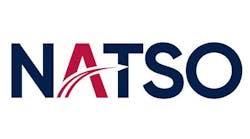According to Navistar subsidiary IC Bus, its use of Advanced EGR technology to meet the EPA 2010 emissions rules will tack $6,000 onto the purchase price of each of its school and commercial buses. The announcement marks the first time Navistar has assigned a price value to the Maxxforce engines it will use to meet the new regs for both its IC Bus and International truck model lines.
“IC Bus understands that many bus customers have fixed budgets and we recognize that a price increase will have an impact on them,” said John McKinney, president, IC Bus. “Through more efficient sourcing and manufacturing operations we have worked diligently to minimize the design and development costs so that 2010 engine prices are as manageable as possible for our customers. And, while our engines will not have the addition of extra aftertreatment equipment like competitors choosing SCR, we’ve invested heavily into the development of a non-urea solution and meeting the stricter emissions levels carries a higher price.”
According to IC Bus, to meet the 2010 EPA emissions requirements for on-highway diesel engines, IC Bus school and commercial buses will be powered by Navistar’s MaxxForce Advanced EGR (exhaust gas recirculation) engines, which he noted will use such proven technologies as advanced fuel injection, air management, electronic controls and proprietary combustion technology.
MaxxForce Advanced EGR engines do not require the use of urea or the addition of bulky on-vehicle urea storage tanks, converters, heaters, and the additional electronics required by SCR systems, the manufacturer pointed out. “MaxxForce Advanced EGR engines set IC Bus apart from the competition with a no-hassle, business-as-usual solution that will deliver lower total operating costs for customers,” stated an IC news release.
“Unlike some of our competitors, we believe that the involvement of the bus driver, the reliability of very complex technologies or the impact of severe climates conditions should not be a factor in meeting emissions requirements,” added McKinney. “Our engines will provide bus customers with a simple and straightforward solution that places the burden of emissions compliance on us, not the customer.”
The pricing increase will affect all IC Bus school bus models ( BE Series, CE Series, FE Series and RE Series) as well as commercial models (including the HC Series and LC Series).


